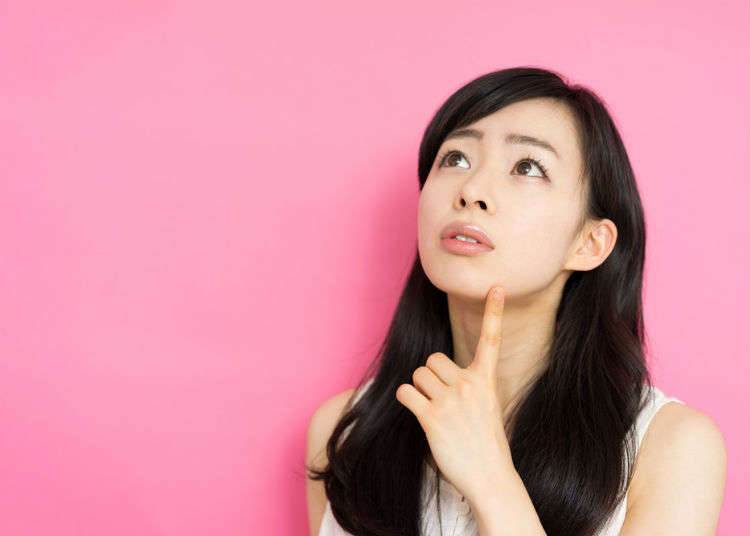
One day my Japanese friend Natsuki invited me to her house for dinner. I prepared well by buying a gift in advance (omiyage), but I kind of failed on Japanese “eating etiquette”. It was more difficult than I thought!
Japanese culture, in terms of manners during eating, can be so different from other cultures, and so today I am going to bring together seven tips that I learnt from my experience!
1. Showing gratitude for the food, and to the host

In Japan, before eating people say itadakimasu (いただきます) which literally translates as “I humbly receive (this meal)”, but they also say gochi sou sama deshita (ごちそうさまでした) which translates as “it was a fine feast”. I always forget to say this one.
It is also a way of expressing gratitude and praise for the food. Natsuki said she felt somehow relieved when I say gochi sou sama deshita, and I realized that an otherwise simple phrase really does touch the chef's heart.
2. Pick up the rice bowl or soup bowl and eat from it while holding it
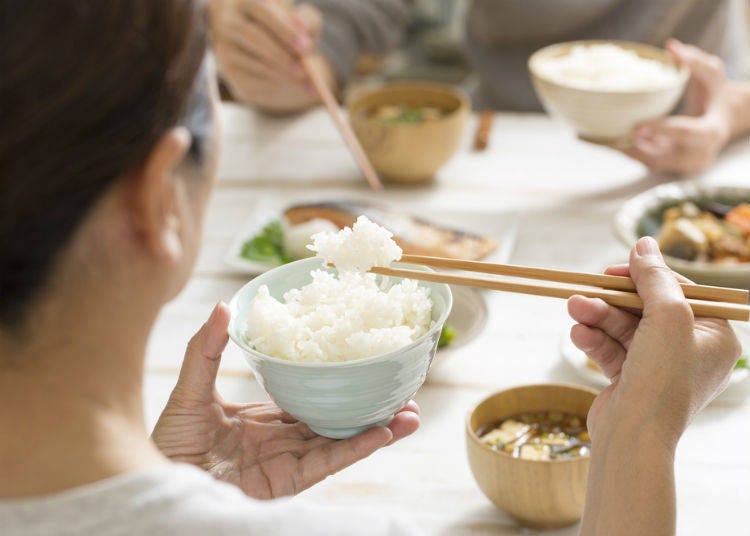
One big difference in manners, or to be more exact how people eat, that I noticed between people in other Asian countries and Japan is how people treat small rice bowls and soup bowls.
In Japan people pick up the bowl with one hand and eat from it using chopsticks in the other hand.
Particularly in the case of soup, for example miso soup, perhaps because Japan is a chopsticks country it is kind of inevitable that people have to drink directly from the bowl.
However, this isn’t true of every small dish on the table, nor does it include larger plates of bowls which can be left on the table.
3. Don’t just eat food directly, move it to your own dish first
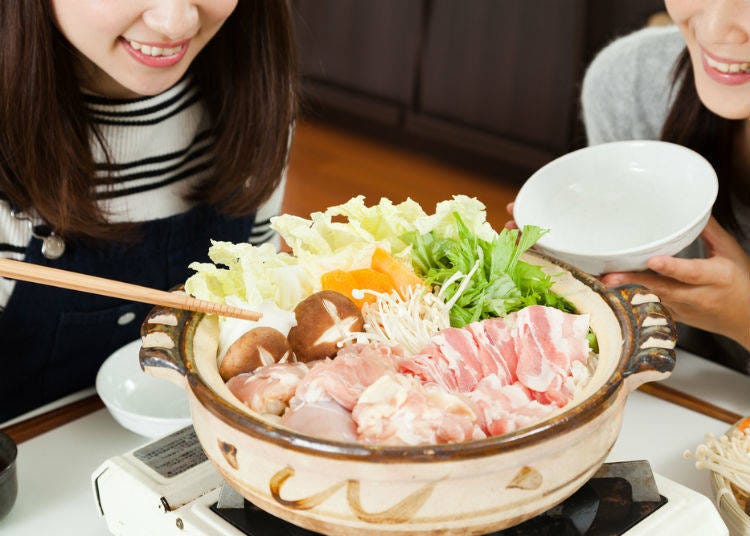
A common mistake that many visitors to Japan make is to try to pick up food from a plate and directly eat it. This can make sense in cultures where it is okay for everyone to eat from the same plate, but in Japan the polite way to eat is to pick up the food and move it to your own dish, and then eat it from there.
You might get away with eating food directly if you are with good friends, but it is kind of a bad habit – especially when you think in terms of hygiene.
4. Side dishes don’t go on top of rice!
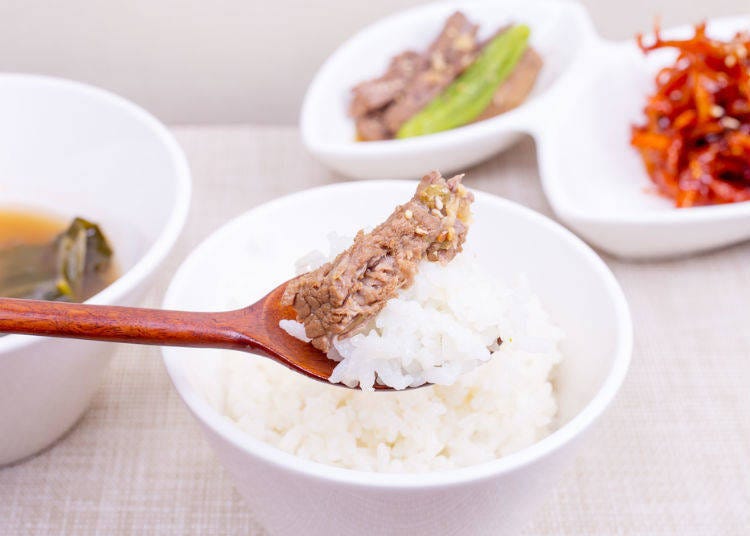
I think I may be guilty of this sin simply because I haven't known better, but apparently in many Asian countries it isn’t normal to put something from a side dish on rice and then eat it from there.
For my friend Natsuki there is a reason to eat side dishes separately from rice. “The rice becomes dirty if side dishes get added to it. In Japan we usually just eat one thing at a time.”
It may be tempting to put a side dish onto your rice, but no matter how delicious it may be it is best to avoid this habit.
5. For noodles like soba and ramen you can’t eat them silently!
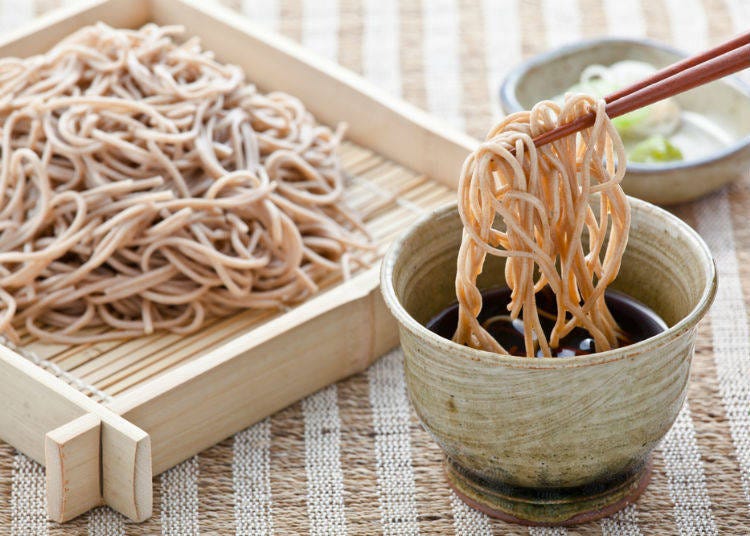
As strange as this may sound, it is rude to not make noise when eating food like ramen in Japan!
In fact in this rule while you need to make a slurping noise, you need to also avoid making an especially loud noise too.
Now you may wonder why you have to make any kind of noise, but there are three reasons.
One, you need to show respect to the chef and making the slurping noise shows that you are eating the noodles properly.
Two, to eat noodles properly they need to still be hot and fresh, so you need to eat them quickly - and slurping helps cool it off.
And, three, apparently by slurping in the noodles you also take in the aroma of the dish too.
6. There are rules behind the use of chopsticks
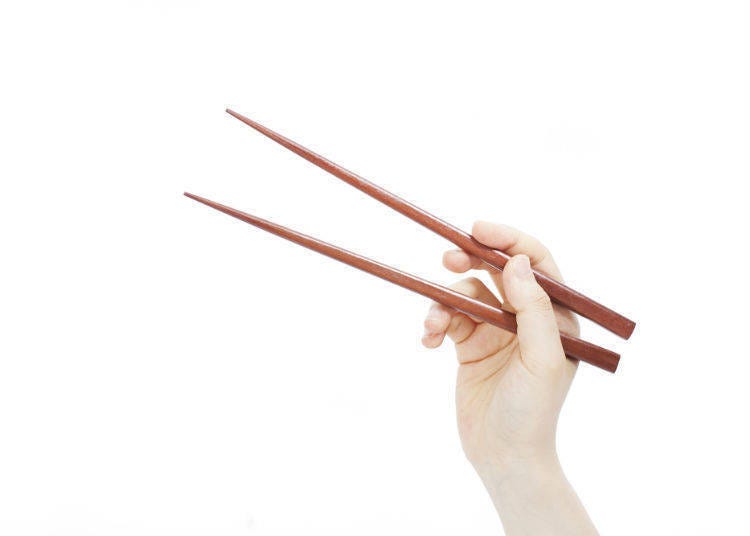
Unfortunately, when eating with chopsticks it isn’t just a simple case of picking up food with two small pieces of wood, or plastic.
There are many prohibitions on chopstick use in Japan, which even have names!
・Sorabashi is to pick up food, but then put it back.
・Sashibashi is to stab the food with chopsticks in order to pick them up, and also to point the chopsticks at someone else.
・Mayoibashi is to hover above food without taking it, basically being indecisive.
・Yosebashi is to use your chopsticks to move bowls or plates around.
For Natsuki just using chopsticks correctly makes the meal time more pleasant and adds to creating a nice atmosphere!
7. Elbows off the table!

This last rule isn’t a very surprising one as it is common in other countries too. Elbows shouldn’t be on the table. In the case of Japan it has the image of someone who is naughty.
On top of this Natsuki told me that besides keeping elbows off the table, hands shouldn’t be hidden below the table either. She said that, “one hand holds the chopsticks, and the other hand either holds the bowl in the air or is used to lightly support the bowl you are eating from”.
Did you know all of these rules? I felt like I knew from guidebooks and from dining with Japanese, but I didn’t quite adhere to them, and that on top of that there is always more etiquette rules to learn and remember. I would say that you shouldn’t feel embarrassed if someone keeps reminding you of these rules, because of course there is nothing better than to be invited to eat again!
*Prices and options mentioned are subject to change.
*Unless stated otherwise, all prices include tax.
Popular Tours & Activitiess
Recommended places for you
-

Kanzenkoshitsuyakinikutabehodai Gyugyu Paradise Sannomiya
Yakiniku
Kobe, Sannomiya, Kitano
-

Kambei Sannomiyahonten
Yakiniku
Kobe, Sannomiya, Kitano
-
Appealing

Rukku and Uohei
Izakaya
Sapporo / Chitose
-

Jukuseiniku-to Namamottsuarera Nikubaru Italian Nikutaria Sannomiya
Izakaya
Kobe, Sannomiya, Kitano
-
Goods

Yoshida Gennojo-Roho Kyoto Buddhist Altars
Gift Shops
Nijo Castle, Kyoto Imperial Palace
-

ISHIDAYA Hanare
Yakiniku
Kobe, Sannomiya, Kitano
-
Ad

What Makes Japanese Yakiniku So Darn Good? Guide to Cuts, Heat, and Wagyu Know-How
-

At This Zen Hideaway in Shinjuku, Master the Way of Tea with English Guidance, Matcha, and Wagashi This April
by: Guest Contributor
-

The Best of Japan's Flavors and Fun! Don Quijote's New "DONKI MEMORIES" Project is Mind-Blowing
-

To the Holy Land of Kawaii! Odakyu Tama Center Station Is Becoming a Dreamy Sanrio Wonderland
by: Guest Contributor
-

From Haneda to Monchhichi's Hometown! Scenic Monorail Ride & Katsushika 'Old Downtown' Walk
by: Guest Contributor
-

Top 3 OSHI MAPs for the Best Matcha and Sweets in Tokyo
by: Guest Contributor
-

ATMs in Japan: About Using International Cash and Credit Cards
-

Premium Chocolate Brand Lindt Japan Launches World's First Sakura LINDOR In Time For Spring 2022!
by: Kei Suzuki
-

Day Trip to Lake Towada - Japan's Gorgeous Northern 'Power Spot' Destination
-

What to Do in Tokyo For a Day: 8 Must-Visit Spots from Asakusa to Roppongi
-

Dakigaeri Gorge: Stroll Beside Aqua-Blue Streams and Brilliant Autumn Leaves in Akita
by: Guest Contributor
-

Kichijoji – Explore Tokyo’s Top-Rated Stylish Suburb in Half a Day!
- #best sushi japan
- #what to do in odaiba
- #what to bring to japan
- #new years in tokyo
- #best ramen japan
- #what to buy in ameyoko
- #japanese nail trends
- #things to do japan
- #onsen tattoo friendly tokyo
- #daiso
- #best coffee japan
- #best japanese soft drinks
- #best yakiniku japan
- #japanese fashion culture
- #japanese convenience store snacks












